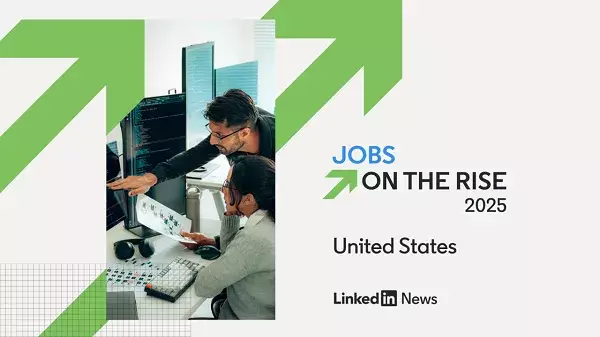As we approach 2025, many individuals are contemplating a career shift, and they’ll find valuable insights in LinkedIn’s latest “Jobs on the Rise” report. This comprehensive analysis sheds light on the roles that are increasingly in demand, accompanied by the skills that employers are seeking to fill these positions. The report not only highlights the growing importance of artificial intelligence (AI) in the job market but also emphasizes professions that remain beyond AI capabilities, providing a balanced perspective for job seekers navigating a rapidly evolving employment landscape.
The Prominence of AI Professions
The findings in LinkedIn’s report position AI-centric jobs, such as “AI Engineer” and “AI Consultant,” as the fastest-growing career options in the platform. The urgency for businesses to adopt cutting-edge AI tools reflects a transforming corporate environment that increasingly leverages technology to enhance operations. While it’s undeniable that AI can significantly enhance productivity and streamline various roles, the importance of human oversight remains critical. Professionals adept in AI technologies are becoming essential as organizations strive to integrate these sophisticated tools while ensuring that the human element—creativity, empathy, and decision-making—is not overshadowed.
Interestingly, alongside the surge in AI roles, there’s an observable demand for jobs that cannot be effectively replicated by machines. Professions like physical therapists and travel advisors exemplify careers that still necessitate human intervention. Physical therapy relies heavily on personal interaction and tailored approaches to treatment that technology cannot yet provide. Similarly, travel advisors bring invaluable insights and personal experiences to the table, enabling them to curate individualized travel experiences far beyond what automated systems can achieve. The growth of these roles underscores a critical takeaway: amidst rising automation, certain professions thrive on human connection and expertise, reinforcing their importance in the job market.
While AI can assist in enhancing various job functions, it cannot act as a complete substitute for the intricate skills that many professions require. For instance, roles involving emotional intelligence, interpersonal communication, and subjective decision-making continue to be reliant on human expertise. LinkedIn’s report suggests that a harmonious integration of AI capabilities with human skills will likely define successful job roles in the near future. Professionals would benefit from understanding how to utilize AI as a tool to complement their unique skill sets rather than perceiving it as a threat to job security.
For job seekers, LinkedIn’s report serves as an invaluable resource, offering an outline of emerging trends that can inform career choices and professional development pathways. For employers, this report provides a snapshot of the current job landscape, guiding hiring strategies that align with evolving workforce demands. As industries adapt, both job seekers and organizations must maintain agility, embracing change to capitalize on opportunities within this dynamic environment.
Professionals seeking to navigate their careers in 2025 will benefit from a comprehensive understanding of both emerging AI roles and the irreplaceable human-centric professions that maintain relevancy. By leveraging insights from LinkedIn’s “Jobs on the Rise” report, individuals can make informed decisions that align with the shifting demands of the job market, ensuring they remain competitive and equipped for the future. Embracing both technology and the unique attributes that define human contributions will be vital for success in the evolving work landscape.


Leave a Reply